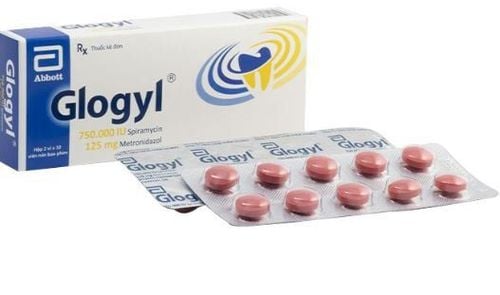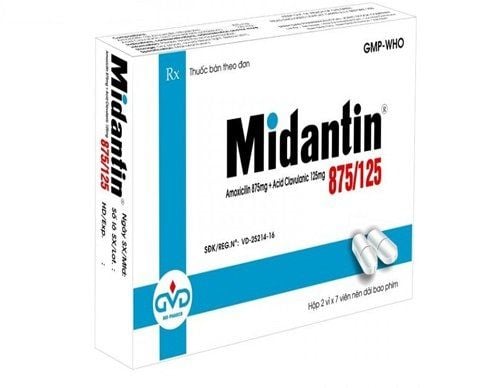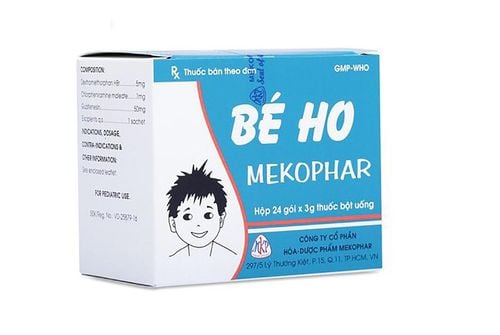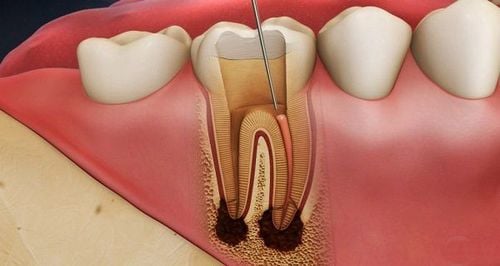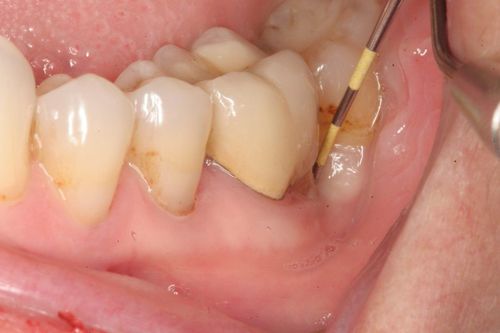This is an automatically translated article.
Oral infections often occur due to tooth decay and poor oral hygiene. However, this condition can also be caused by previous dental interventions or trauma to the maxillofacial region. Regardless of the cause, the treatment of oral infections thanks to the role of antibiotics is key.
1. What is a dental infection?
Oral infection has long been a disease that worries many people if they ever have it. Infection usually arises from pulpitis and necrotic pulp is involved initially from the tooth surface as caries. The invasion and disease of bacteria can then remain localized or will quickly spread through the surrounding areas, even bacteria in the bloodstream causing sepsis, encephalitis - meningitis. These are also serious complications of oral infections, sometimes making patients life-threatening if not treated promptly, especially in immunocompromised, pre-existing or weakened subjects. have chronic diseases.
Patients with oral infections go to the doctor because of pain, swelling in the gums or the entire face, sensitivity to hot, cold or spicy foods. Initially, these symptoms are mild and insidious. Later, this condition will get worse, the infection will spread, causing the patient to have a high fever, difficulty swallowing, difficulty breathing, limited opening of the mouth, bad breath, poor appetite and weight loss.
The treatment of oral infections should be carried out early, as soon as the patient has the first symptoms. The doctor will prescribe mainly anti-infective drug groups and combine with surgical intervention to resolve the pus-filled fossa, limiting the spread to neighboring organs.
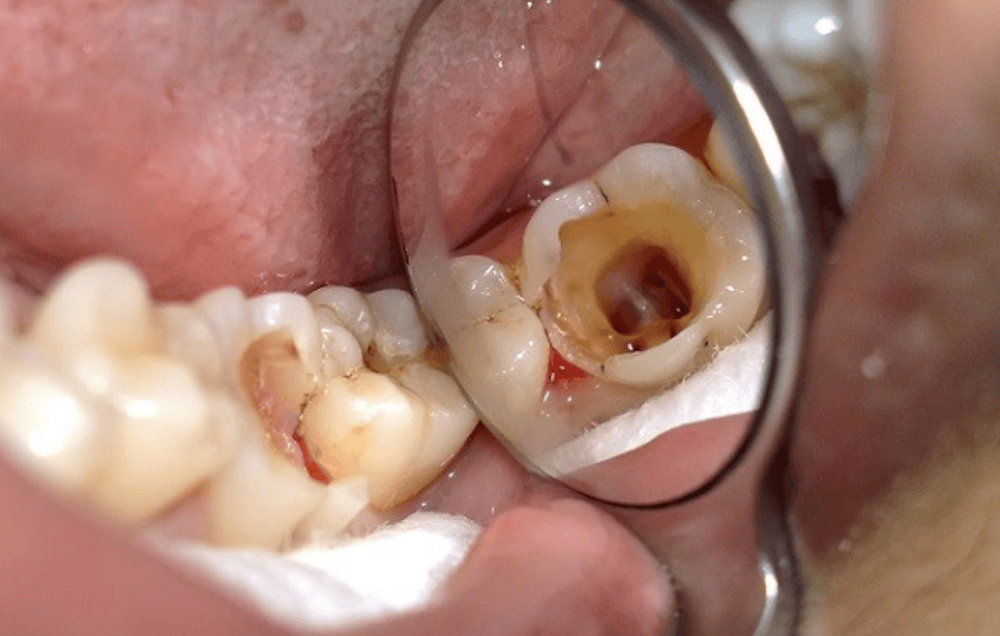
Hình ảnh bệnh nhân bị sâu răng gây viêm tủy
2. Groups of drugs against oral infections
Although antibiotics play a role in killing bacteria, helping to eliminate oral infections, for the treatment to be highly effective, certain principles must be followed when using the drug. Accordingly, patients are not allowed to arbitrarily use drugs without a doctor's examination. The type of antibiotic prescribed will also vary depending on the strain of bacteria causing the infection as well as the patient's physical factors. At the same time, sometimes it is necessary to combine different groups of antibiotics, which have different mechanisms of action in order to destroy bacteria most thoroughly.
Details of groups of antibiotics used to treat oral infections are presented below:
2.1. Penicillins Penicillins are a group of antibiotics commonly used in the treatment of oral infections. Amoxicillin is also a familiar antibiotic in the Penicillin group. However, some dentists may also recommend amoxicillin plus clavulanic acid to help eliminate antibiotic-resistant yeast bacteria.
However, due to their age and being a "classic" group of antibiotics, some bacteria can become resistant to the antibiotics in the Penicillin group, making them less effective. As a result, in practice, many doctors now choose other antibiotics as the first line of treatment over the penicillins.
In case penicillins are selected, a history of allergy to these drugs should be noted.
2.2. Clindamycin Clindamycin is effective against a wide range of bacteria that cause infections, including oral infections. This is even the first group of drugs to treat oral infections that are recommended because bacteria may be less resistant to this drug than the penicillin group.
Typical clindamycin dosage is 300 mg or 600 mg every 8 hours.
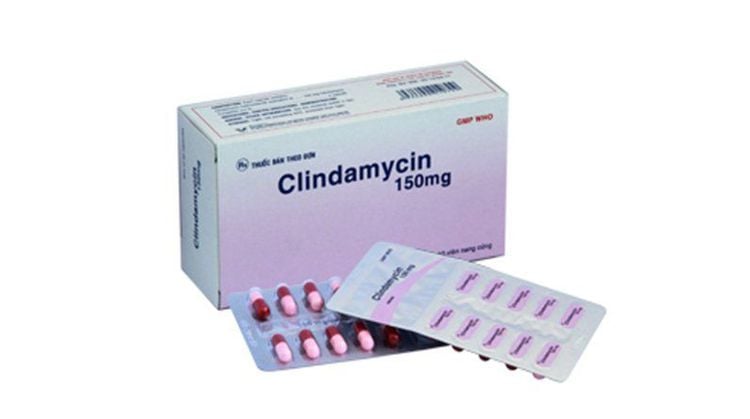
Thuốc Clindamycin
2.3. Azithromycin Azithromycin works against many types of bacteria by preventing their growth. Therefore, the drug is also effective in the treatment of some oral infections. However, the situations in which a dentist may prescribe Azithromycin are for people with a penicillin allergy or an infection that has not responded to these medications.
The typical dose of azithromycin is 500 mg every 24 hours for 3 consecutive days.
2.4. Metronidazole Metronidazole is an antibiotic very often indicated in cases of suspected anaerobic infection. Therefore, this drug is not the first choice of treatment or alone, but often in combination with other groups of antibiotics.
Dosage for metronidazole is approximately 500–750 mg every 8 hours.
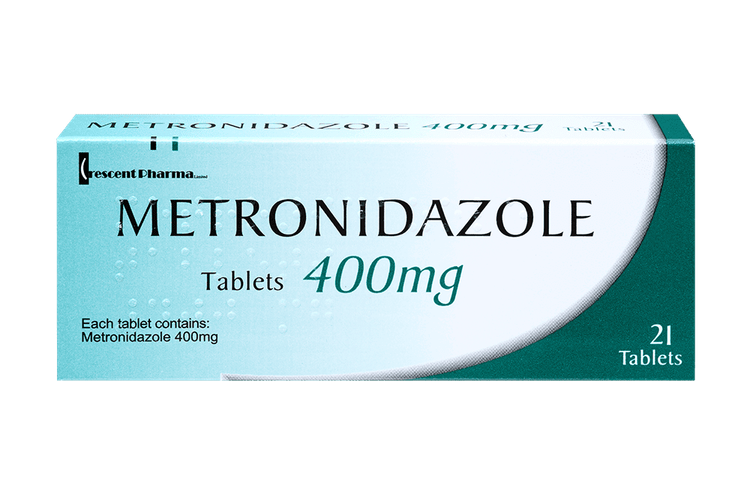
Thuốc kháng sinh Metronidazole
3. How long does it take to take medicine to treat oral infections?
Each antibiotic has a distinct duration of action, which varies depending on many factors, such as the severity of the infection, the characteristics of the causative organism, and the patient's background. Accordingly, for the treatment to be highly effective, the patient needs to strictly follow the instructions from the doctor and complete a full course of antibiotics, at the right dose. Based on the results of many community studies in the dental specialty, most cases of acute oral infections clear up in 3 to 7 days.
Conversely, some people may find their symptoms go away. disappear after a few doses and voluntarily stop taking the drug; however, the infection is more likely to come back and is more severe, requiring more potent antibiotics.
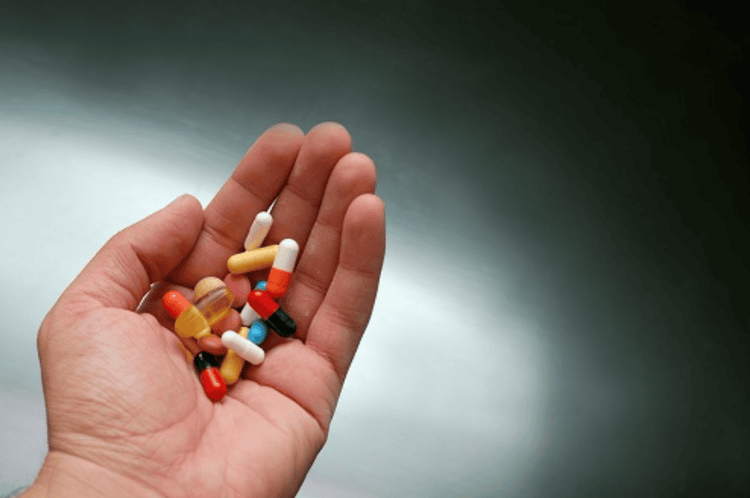
Sử dụng thuốc theo sự hướng dẫn của dược sĩ, bác sĩ
4. Other supportive oral infection treatments
Antibiotics, when taken orally, will dissolve in the bloodstream to the infection site to kill bacteria. However, if the pus is large, causing inflammation of the root abscess or an entire maxillofacial region, it is necessary to coordinate with surgical intervention to help narrow the infection. These interventions may only need to be performed at the dentist's examination table or sometimes need to go to the operating room in the oral and maxillofacial specialty. Therefore, a doctor's examination is always necessary to guide the correct treatment.
At the same time, the patient can also do the following simple ways to help relieve symptoms:
Apply cold skin on the swollen and painful face and face Use paracetamol to reduce fever with a high dose suitable for weight gargle gently with warm salt water to increase local antiseptic properties Brush teeth, floss properly after each meal to ensure hygiene, avoid storing old food scraps Use a bristled brush soft, avoid foods that are too chewy, hard, too hot or too cold to prevent irritation Use teeth to chew on the opposite side of the mouth to limit pressure on the inflamed side
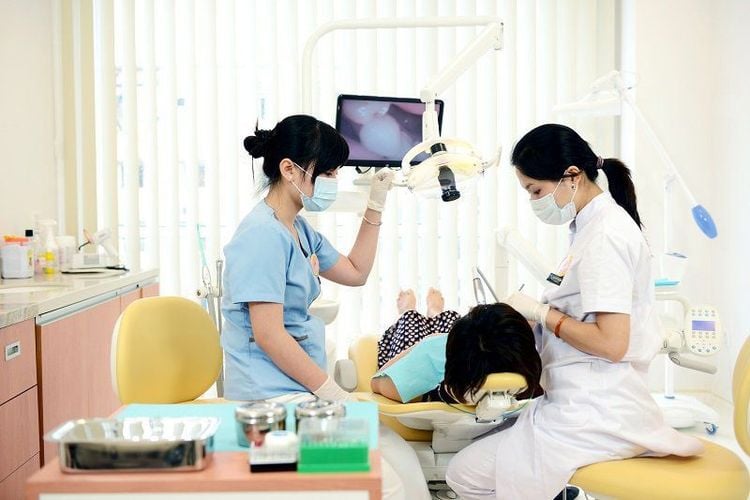
Khám nha khoa định kì giúp phát hiện sớm bệnh lý răng miệng
In summary, oral infections can initially be localized but can spread if not treated promptly. In particular, antibiotics play a key role in the group of drugs against oral infections, but they are only part of the solution. Therefore, patients need to visit early to be prescribed appropriate antibiotics, coordinate necessary surgical interventions to quickly regain dental health.
Please dial HOTLINE for more information or register for an appointment HERE. Download MyVinmec app to make appointments faster and to manage your bookings easily.
References: cochrane.org, medicalnewstoday.com, scielo.isciii.es, emedicine.medscape.com, racgp.org.au



